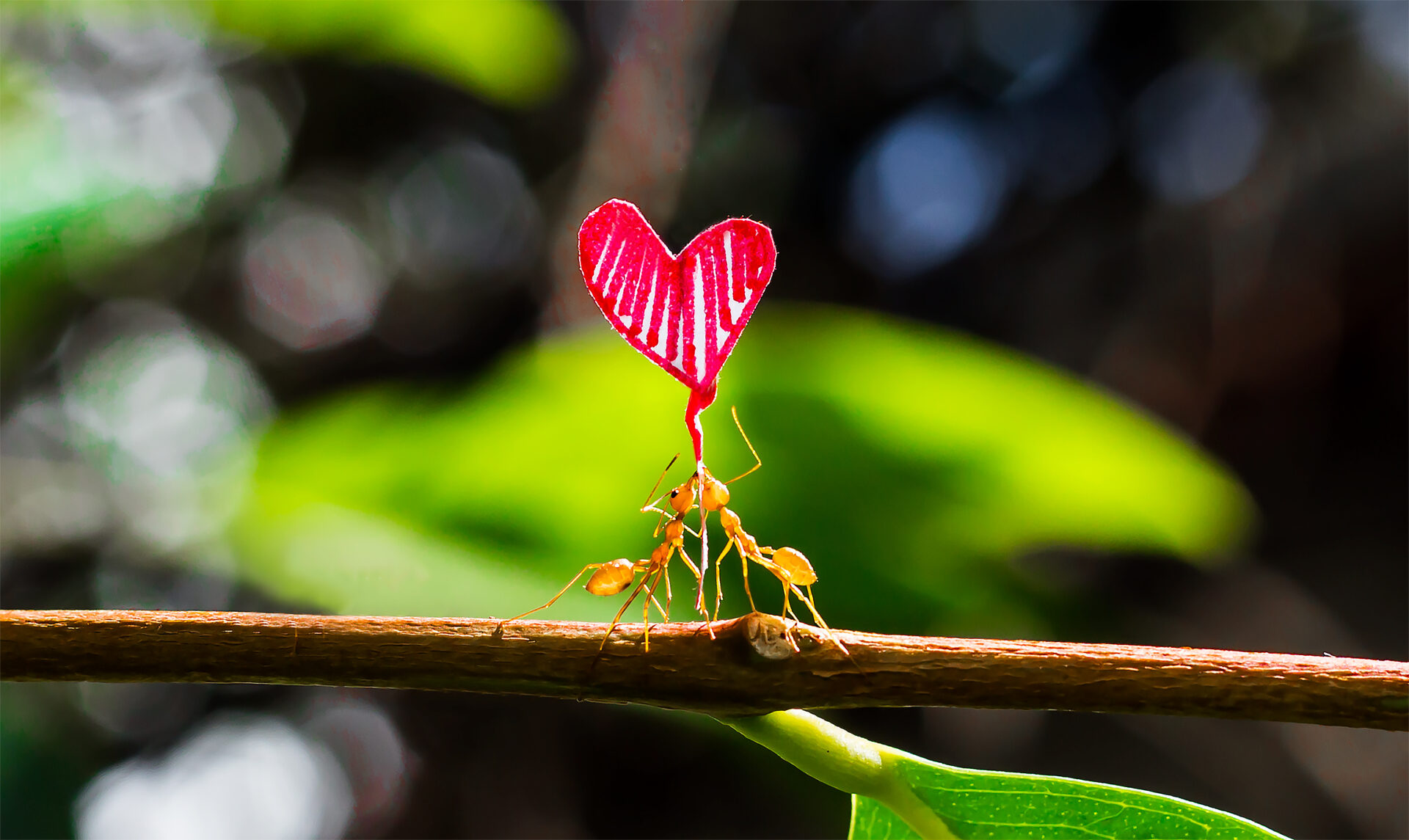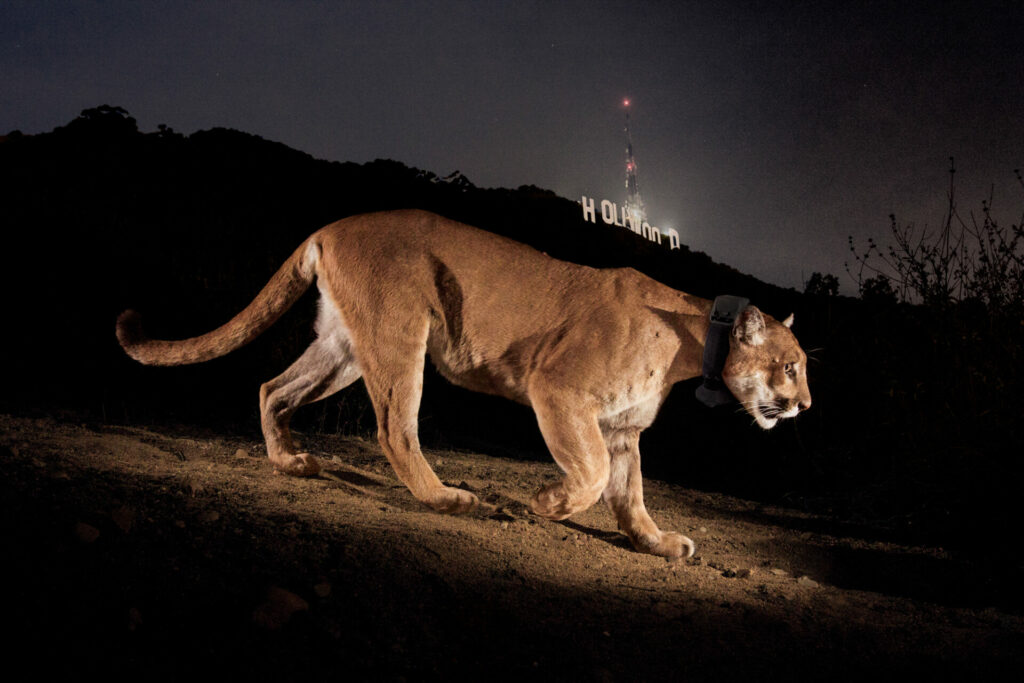Insects aren’t always given the respect they deserve. For a start, we call them creepy crawlies and when they show up unexpectedly, many people’s first instinct is to lash out, or even to squash them. Those that do argue it’s instinct and understandable because they’re, well, scary.
They have spindly legs, protruding eyes and they move unpredictably. They can also sting, bite, or get caught in our hair and clothes. Some spread disease, even deadly infections, but those insects are in the minority. The vast majority of bugs actually provide a great service to the environment around them. In fact, in the great scheme of things, insects are the unsung heroes of our natural world.
‘Though they may often appear insignificant to our eyes, insects are a crucial part of the foundation of natural ecosystems,’ says Matt Forister, Professor of Biology at the University of Nevada, Reno. And there are plenty of them – up to ten million species on Earth, which is around 1.4 billion insects for every person – though the favourite, and one of the most essential, must be the bee.
The End Of The World?
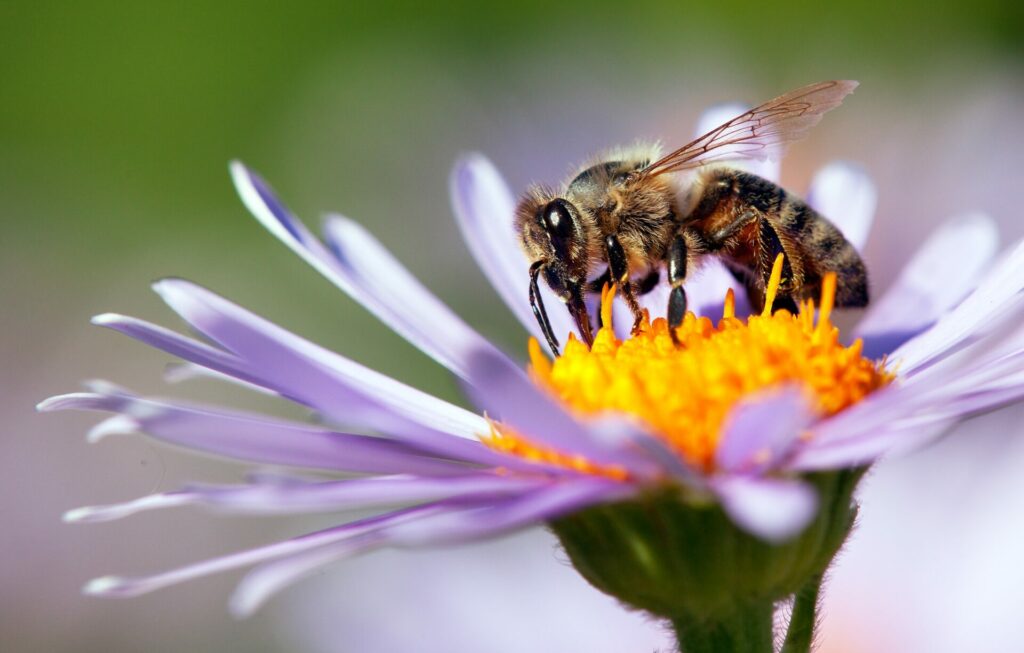
Since the start of the 21st century, there have been increasing warnings about the decline in global bee populations and the catastrophic impact this might have. Through the filter of social media, these reports paint a harrowing scenario. First, extinction would lead to a rapid and wide-scale reduction of plant and bird life. This would then create food shortages for other animals and, before long, humans. In turn, this theorised chain reaction would lead to mass hunger and the collapse of societal structures. Effectively, so the stories suggest, losing bees would cause the end of the world.
Light pollution, the impact of microplastics, pesticides, and climate change all combine to damage the health of insect populations and biodiversity
In truth, the BBC’s Science Focus suggests that, eventually, ‘other insects would probably take over the empty ecological niche.’ In the short term, however, it’s likely that many global markets for various food groups would collapse, including those for coffee and chocolate alongside several staple fruits. As a result, many nations would suffer increased economic hardship.
While bees might be the most famous example of insect population decline, they are far from alone. Pennsylvania State University’s Huck Institute of Natural Sciences has highlighted how entomologists have observed many bug species declining in numbers around the world since the late 1930s. Factors such as fragmentation of habitat, light pollution, the impact of microplastics, pesticides, and climate change all combine to damage the health of insect populations and biodiversity. While losing one or two species may be manageable for humanity, losing all of them would be disastrous.
That’s because insects ‘provide a multitude of functions and services including pollination, decomposition or waste recycling, and pest control,’ says Professor Forister. ‘They are also food for those above them in the food chain. Without insects, every other form of life – including humans – becomes unsustainable.’ Let’s take a look at what exactly bugs bring to the global table.
What Bugs Do For Us
Clean Water
Despite it being essential for all life, human societies have a mixed record when it comes to keeping water clean and toxin-free. Thankfully, bugs have got our backs. Several species, caddisflies for example, naturally break down foreign bodies in wetlands, helping to keep water safe for consumption and habitation.
Fruit and Flowers
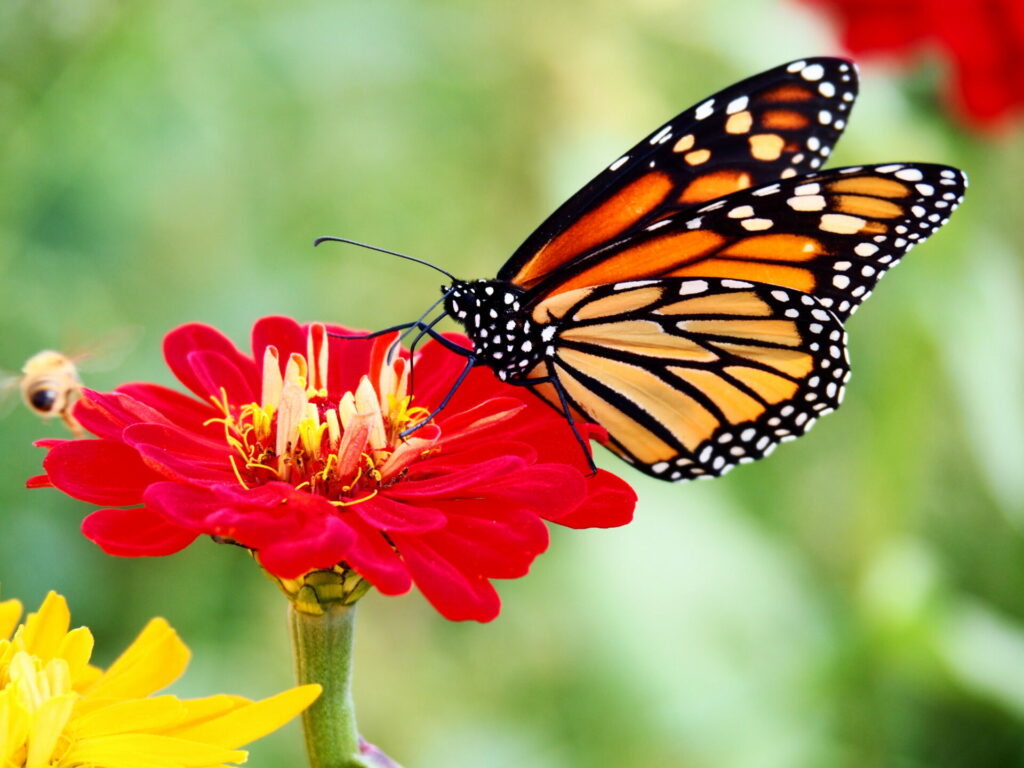
Spend any time in a garden at the right time of year and you’ll see bees and butterflies flitting between the various plants and flowers. Other than making delicious honey, pollinating flora as they search for nectar is the most famous function of these flying creatures. By doing this, bees and their ilk not only keep our landscapes beautiful, they also help us to grow foods such as blueberries, tomatoes and more.
Seed Spreading
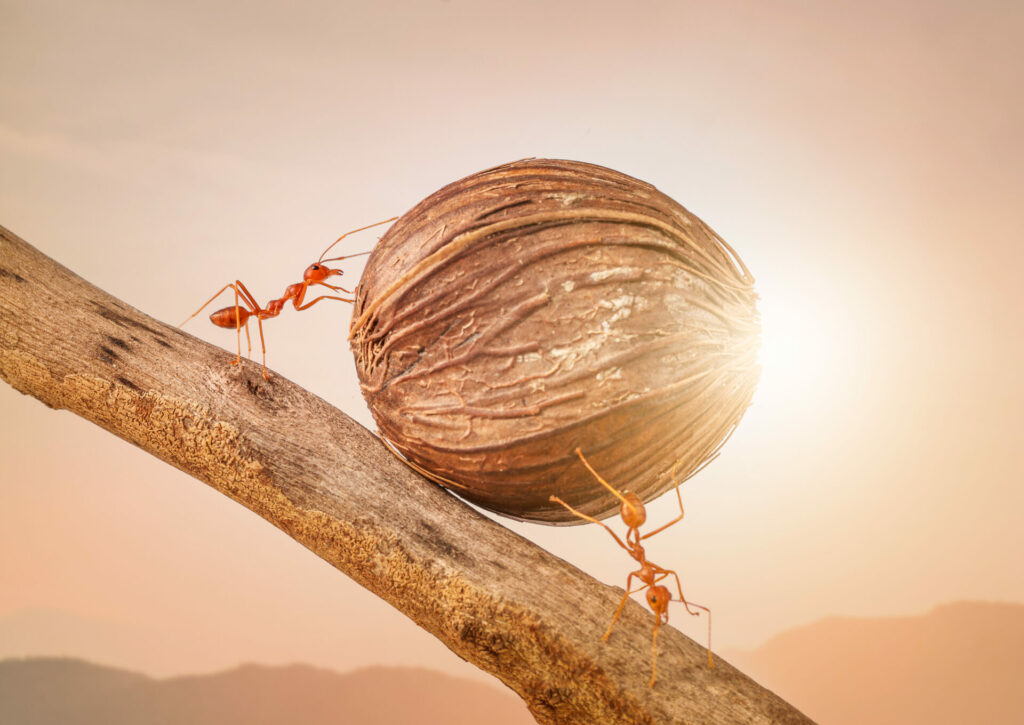
Dispersing seeds is a vital part of the life cycle for every flower, fruit, or tree. Some of this is done by the wind, or through seeds eaten and expelled by birds and mammals, but many insects also play important roles. Ants, for example, are known to carry the seeds of more than 10,000 plant species, dropping some along their way so they might germinate in new areas to help create a widespread and healthy next generation.
Bird Food
Insects are vital to the diet of many birds and it’s believed around 500 tonnes of these tiny but nutritious creatures are eaten by winged predators every year. Many fish, reptiles, amphibians, and mammals also eat bugs, as do 25 per cent of humans around the globe.
Emission Reduction
Methane released by cows and sheep is a major contributor to global warming driven by greenhouse gases. While the human race struggles to find the best way to combat this problem, dung beetles are already getting on with it. They break down and bury animal waste helping to reduce emissions while also battling the spread of disease and keeping soil healthy.
Pest Control
Some insects do attack crops, but many more act as protective patrols. Bugs like ground beetles help trim weeds or take out pests that might otherwise inflict damage on each season’s yield. Ladybirds help to keep aphid populations down. Wasps might be a nuisance for humans trying to enjoy a picnic but for caterpillars, crickets, and spiders, they can be deadly. It’s estimated bugs are so efficient at keeping populations in check that the same service would come with a bill of over $400 billion (AED 1.47 trillion) a year if it were provided by human pest controllers.
Mosquito Eating
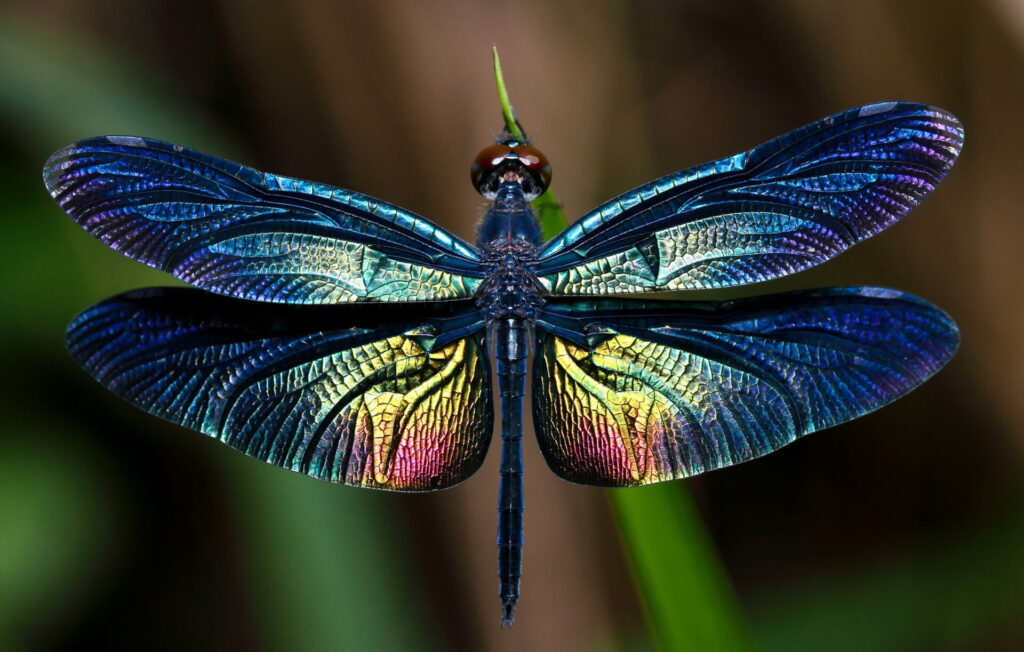
In an epic battle that has lasted more than 100 million years, dragonflies and mosquitoes have fought for supremacy in the skies. Well, that might be a little dramatic, but mosquitos are one of the most prolific spreaders of deadly diseases and also the natural prey of dragonflies. By feeding on dozens, or sometimes hundreds of mosquitos every day, dragonflies and similar creatures also help to protect us from diseases and viruses like dengue, Zika, and malaria.
Clean-up Crew
Bugs around the world also play an essential part in the circle of life by helping with the decomposition process. By feeding on animal carcasses and buried bodies, bugs help keep things clean, minimize odours, and prevent the spread of disease.
For all these reasons and more, it is the responsibility of us all to take the decline in bug populations very seriously. What, though, can ordinary citizens do to help improve the situation for bugs in their area?
Saving The Bugs
‘People can be a little lazier, and that will benefit insects,’ says Dr Lusha Tronstad, Lead Invertebrate Zoologist, University of Wyoming. But what exactly does she mean? Here are seven ways we can all help save the insects.
Go Wild
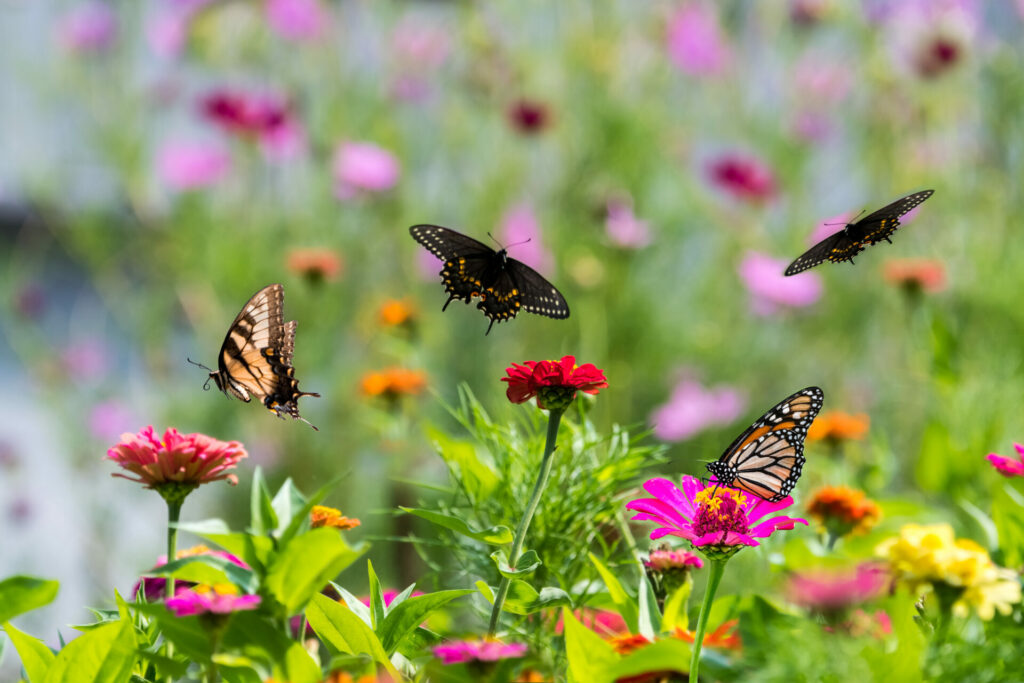
Everybody loves to have a neat and tidy garden they can show off to the neighbours, but insects find these landscaped areas less attractive. By letting the grass grow a little longer, adding some wildflowers, or generally letting nature take more control, you can help replace some of the high-quality habitat that has been eroded by over-cultivation.
Let Peat Lie
Peat, which is formed over thousands of years, has been a popular growing medium for centuries. It’s also an important natural habitat for many insects which make up the diet of birds, snakes, and lizards. Using alternative materials for cultivation helps preserve these vital habitats and those creatures whose lives depend on them. Gardeners in the UAE, for example, where growing your own food is becoming increasingly popular, have found a fantastic replacement for peat in the form of coir, or cocopeat, which is made from the husk of coconuts.
Ban Pesticides
For farmers and gardeners, deterring the animals and insects which damage crops while encouraging those which are more useful has been a challenge throughout history. In modern times, pesticides have been viewed by many as the most efficient way to protect fields and gardens. These poisons, however, kill indiscriminately and can cause devastation to the very populations we are trying to maintain. Alternative solutions such as physical barriers, companion plants, and introducing natural predators can help care for our crops without hurting the bugs we wish to protect.
Reduce Light Pollution
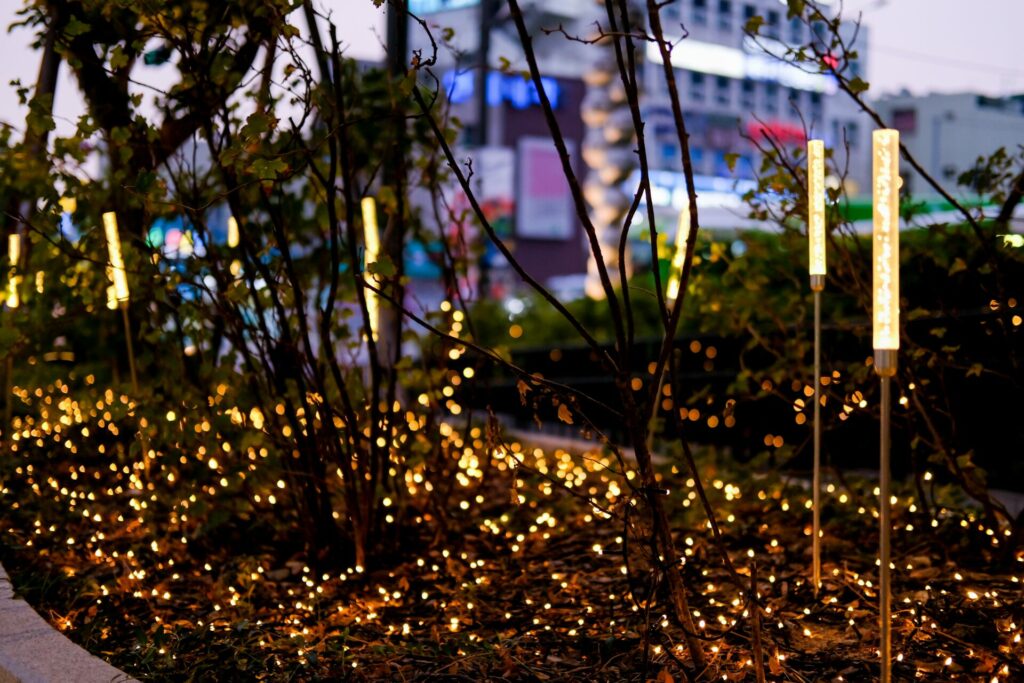
Pesticides aren’t the only pollutants which corrupt our ecosystems. Artificial lights have also been shown to confuse the natural behaviours of many animals and bugs. Reduce outdoor lighting to a minimum and try to keep things as dim as possible for at least six hours before dawn. Low-level LED lighting in warm tones is also preferable to harsher options.
Compost and Recycle
Dealing with your household waste responsibly is something you can do to help bug populations no matter where you live. If you have a garden, biodegradable waste can be composted to create organic growing materials which can be used instead of shop-bought soil which may be contaminated with chemicals, or “enriched” with synthetic fertilisers. Similarly, no matter where you live, making a concerted effort to recycle helps keep pollutants and plastics out of landfills and waterways to maintain a healthier environment for our bugs.
Stay Carbon-Light
Finally, lowering our carbon footprint is one of the most important things any of us can do to protect our environment at every level. Global warming affects bugs just as it does every living creature on the planet. Taking whatever steps we can to minimise our carbon emissions, or to help create a better balance, will help the smallest creatures in our world just as much as it helps the largest.
These are just a few of the small things we can do to help save the bugs in our area, and around the world. Getting involved in local conservation schemes or following national initiatives can also help make a big difference for combatting a growing problem. As Professor Forister says: ‘Insects, like every bit of the natural world, are declining, but it’s clear insects have a possibility to rebound. It’s grim, but it’s not too late.’
They may be tiny creatures but, when they are so vital to our ecosystems and, by extension, our lives, doing nothing to help the world’s bugs seems foolish.


